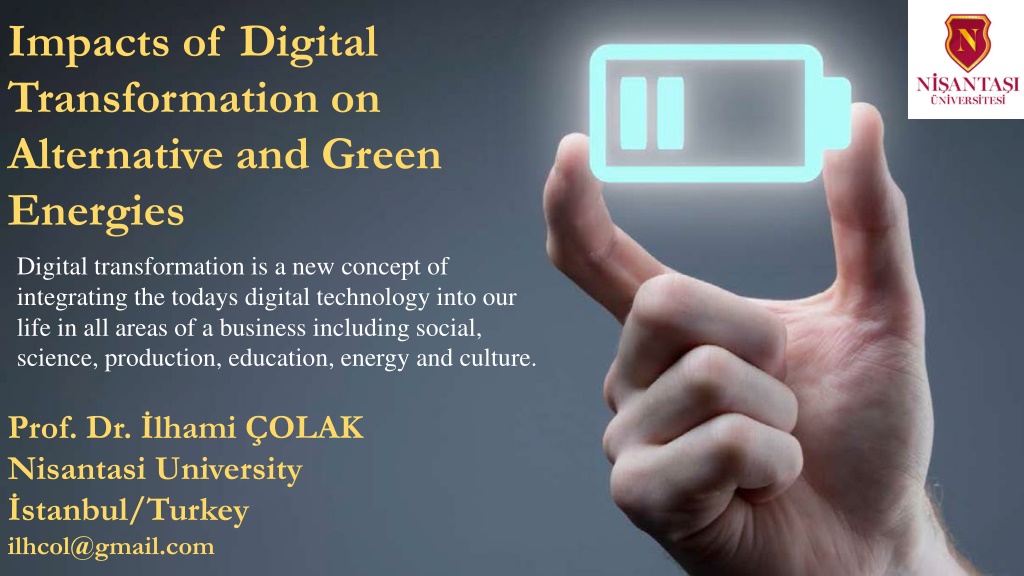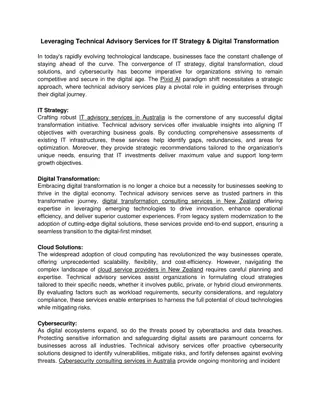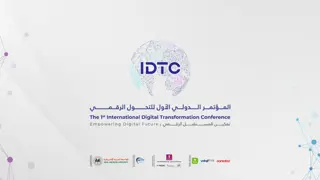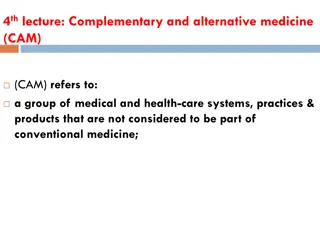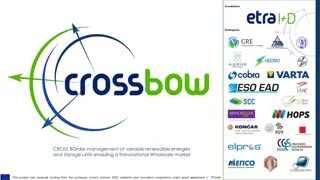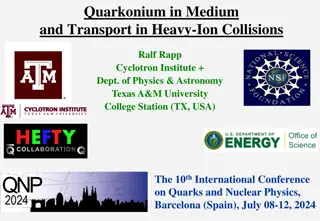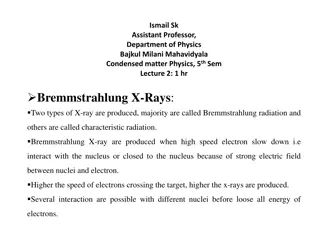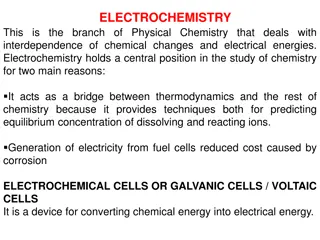Impacts of Digital Transformation on Alternative and Green Energies
The integration of digital technologies into alternative and green energy systems is transforming the way businesses operate and deliver value. Digitalization enables advancements in data, analytics, and connectivity, leading to improved renewable energy solutions such as solar power, wind power, biofuels, and distributed generation. Challenges and trends in digital transformation within the energy sector are also highlighted in this presentation.
Download Presentation

Please find below an Image/Link to download the presentation.
The content on the website is provided AS IS for your information and personal use only. It may not be sold, licensed, or shared on other websites without obtaining consent from the author. Download presentation by click this link. If you encounter any issues during the download, it is possible that the publisher has removed the file from their server.
E N D
Presentation Transcript
Impacts of Digital Transformation on Alternative and Green Energies Digital transformation is a new concept of integrating the todays digital technology into our life in all areas of a business including social, science, production, education, energy and culture. Prof. Dr. lhami OLAK Nisantasi University stanbul/Turkey ilhcol@gmail.com
Contents Digital Transformation Highlights Digital Transformation Platforms Tackling Global Warming Improving Supply Side of Energy Alternative and Green (Renewables) Energies Solar Power Wind Power Bio-fuels Hydro New Concept: Distributed Generation and Microgrids Smart Grids Increasing Information Exchange in a Sustainable Energy Supply Challenges and Next Steps Digital Transformation Eight Key Digital Transformation Trends in 2021 Communication and Security Aspects of Digital Transformation in Energy Application An Application of Digital Transformation in the Hybrid Clean Energy Park International Peer Reviewed Journals
Digital Digital Transformation Transformation Digital transformation is the process of using digital technologies to create new or modify existing business processes, culture, and customer experiences to meet changing business and market requirements. This reimagining of business in the digital age is digital transformation. In another word, digital transformation is the integration of digital technology into all areas of a business resulting in fundamental changes to how businesses operate and how they deliver value to customers. Beyond that, it's a cultural change that requires organizations to continually challenge the status quo, experiment often, and get comfortable with failure. It is not possible to describe the digital transformation with few technologies of the digital transformation. However web 2.0, mobile techs, broadband internet services, cloud services, digital media, big data, artificial intelligence, augmented reality, IoT and 3D printers have started a new term by effecting the people.
Digital Digital Transformation Transformation In this presentation, the effects of digital transformation on Green and Alternative (renewable) energy systems are highlighted.
Highlights Digitalization describes the growing application of information and communications technologies (ICT) across the economy, including renewable energy systems. The trend toward greater digitalization is enabled by advances in data, analytics and connectivity: increasing volumes of data thanks to declining costs of sensors and data storage rapid progress in advanced analytics, such as machine learning greater connectivity of people and devices as well as faster and cheaper data transmission. Digitalization encompasses a range of digital technologies, concepts and trends, such as artificial intelligence, the Internet of Things (IoT) and the Fourth Industrial Revolution.
Highlights Some of these digitalization trends are truly astounding 90% of the data in the world today were created in just the past two years, and there are now more mobile phone subscriptions in the world than there are people. Digital technologies have been helping to improve energy systems for decades, but the pace of their adoption is accelerating. For example, global investment in digital electricity infrastructure and software has been increasing by 20% annually in recent years. These digitalization trends raise the fundamental question of whether we are entering a new era of digitalization in renewable energy.
Following platforms are used for digital transformation; HAN, Home area network LAN, Local area network Internet
